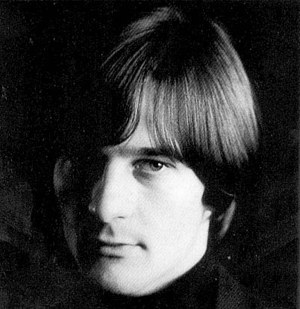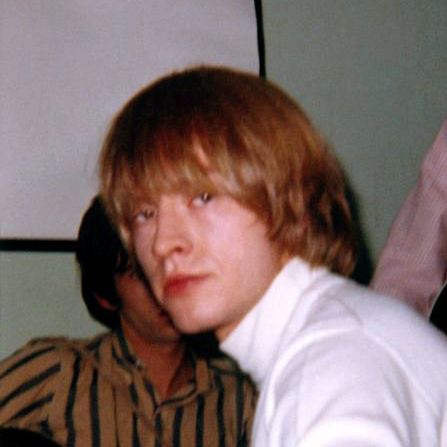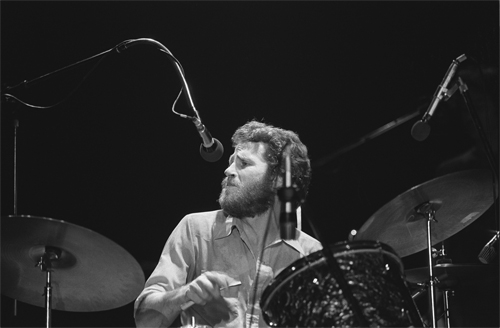 |
| Remember him? He founded The Byrds. |
There is a certain inevitable dynamic to rock bands that usually leads to them breaking up soon after achieving fame. The original leader of the band almost never ends up as the final leader of the band, and he usually quits in bitterness towards the others, most often at about this point.
Some famous examples: Who was the original leader of the Rolling Stones? Brian Jones—who left the band in 1969. Now the Stones are run by Mick Jagger and Keith Richards. The Byrds? Gene Clark—who left after two years. The Band? Levon Helm, who stayed with the band, but due to bad feelings towards the others, did not appear for their induction into the Rock and Roll Hall of Fame. The Band had enough cohesion from many years of playing together to weather the storm of fame better than most. The Who? Roger Daltrey put the band together, not Pete Townsend. The Doors? Ray Manzarek, not Jim Morrison. Remember Paul Revere and the Raiders? Wasn’t it confusing how Paul Revere was just the guy on keyboards, while the leader was obviously Mark Lindsay?
 |
| Did he ever make the cover of The Rolling Stone? |
Who this person is going to be is not altogether predictable in advance. It is most likely to be the songwriter of the group. Next most probable is the lead singer, because voices are the instruments most likely to be distinctive, and the lead singer tends to be the focus of attention on stage. After that, in a rock band, the lead guitarist, if he has a truly distinctive style. Bassists, drummers, and rhythm guitarists are easily interchangeable.
 |
| The original name was going to be The Levon Helm Sextet. |
In The Band, Levon Helm was also a singer, but not the lead singer. That was Richard Manuel. But Manuel did not really dominate, because he was one of three good voices used regularly—himself, Helm, and Rick Danko. Robbie Robertson came to lead the band because of his dominant songwriting abilities, and a powerful stage presence. With three singers, he was the one consistent point around which everything else on stage seemed to revolve. When he left the Band, and the Band nevertheless tried to continue, it got nowhere—because it could not generate any new songs.
| The Doors' founder and best musician (r), and best songwriter (l) trying to give autographs. |
As the examples suggest, all this is fairly unpredictable; it is hard to know when the band is just setting out what in what they do will strike a public chord and become their marketable essence. But it is always most likely that the original leader will be supplanted. If the odds are random, and there are four or five members of the band, the original leader has only a 20 to 25% chance of ending up on top.
But organizational skill does not generally come along with artistic talent; more often the opposite. Serious artists tend to be quite impractical in their view of the world. It is the unique and original artist who will end up dominating in this situation. The odds are stacked against it being the same guy who has the organizational skill.













No comments:
Post a Comment